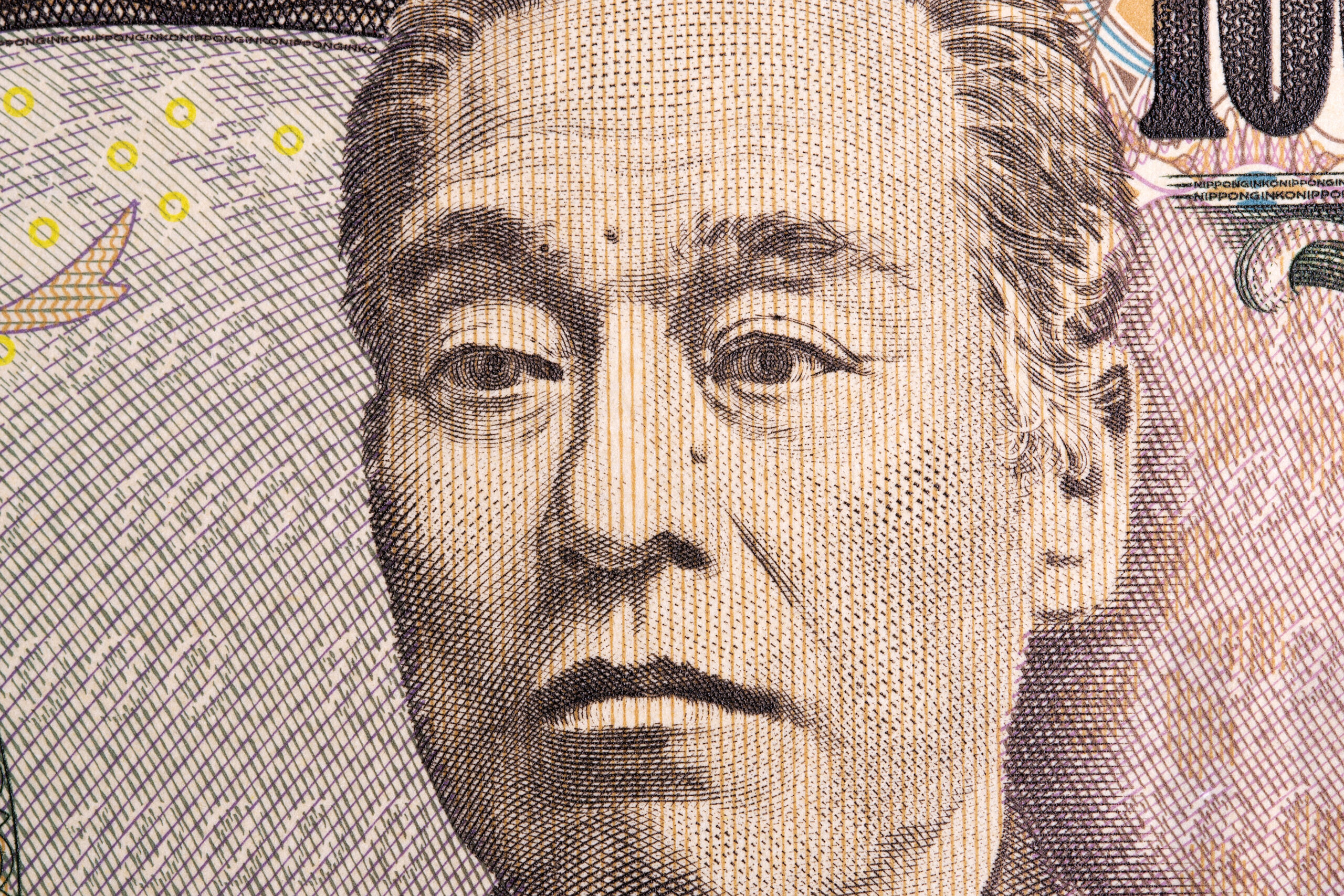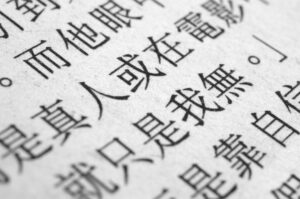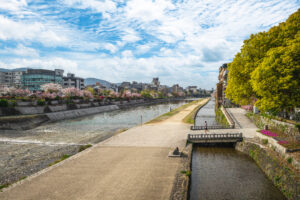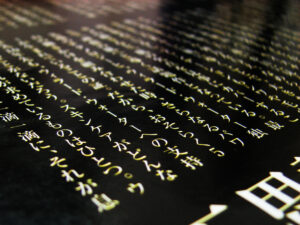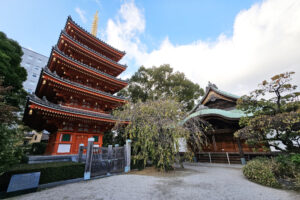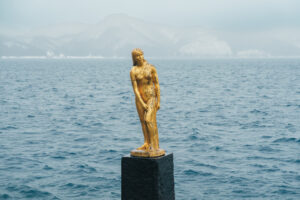In the tapestry of Japan’s rich history, few figures shine as brightly as Fukuzawa Yukichi, a luminary whose ideas and actions propelled the nation into the modern age. As the architect of Japan’s enlightenment, Fukuzawa’s legacy is woven into the fabric of the country’s culture, economy, and education system. This article delves into the life of Fukuzawa Yukichi, exploring how his vision and determination orchestrated a symphony of change that continues to resonate through Japan’s corridors of power and streets alike.
The Dawn of Japan’s Enlightenment Era
The mid-19th century marked a pivotal moment in Japanese history, as the country stood on the cusp of monumental change. With the arrival of Commodore Perry’s "Black Ships," Japan’s era of sakoku (national seclusion) was irrevocably shattered, ushering in a period of tumult and transformation. It was against this backdrop of uncertainty and upheaval that the seeds of Japan’s enlightenment were sown. Intellectuals and reformers began to question the status quo, advocating for a departure from feudal traditions in favor of progress and modernization. Among these voices of change was Fukuzawa Yukichi, whose ideas would come to define this new era of enlightenment.
Fukuzawa Yukichi: A Visionary’s Early Life
Born in 1835 in Osaka, Fukuzawa Yukichi emerged from modest beginnings to become one of the most influential figures in Japanese history. His early life was marked by a thirst for knowledge and an unwavering commitment to self-improvement. Despite the constraints of his samurai class background, Fukuzawa was determined to break free from the shackles of traditional education. He recognized early on that for Japan to thrive, it needed to look beyond its borders and embrace the wider world. This realization set him on a path that would not only transform his own life but also the destiny of his nation.
The Making of a Modernizer: Yukichi’s Education
Fukuzawa Yukichi’s journey into the realm of enlightenment began with his education. In an era when travel abroad was rare and highly restricted, Fukuzawa’s insatiable curiosity about the West led him to Nagasaki, one of the few windows Japan had to the outside world. Here, he immersed himself in the study of Western sciences and languages, laying the groundwork for his future endeavors. His mastery of Dutch and later English opened doors to a wealth of knowledge previously inaccessible to his countrymen. Fukuzawa’s education became the foundation upon which he would build his vision for a modern Japan.
The Odyssey West: Yukichi’s Transformative Journey
In 1860, Fukuzawa embarked on a transformative journey to the United States, a trip that would have a profound impact on his worldview. As part of the first Japanese diplomatic mission to the West, he observed firsthand the advancements and innovations that propelled Western societies. From the efficiency of American industries to the egalitarian principles underpinning Western education systems, Fukuzawa returned to Japan with not just observations but a blueprint for change. His subsequent travels to Europe further solidified his conviction that Japan must adopt Western ways of thinking and technology to secure its place in the world.
The Pen Is Mightier: Yukichi’s Literary Influence
Fukuzawa Yukichi’s legacy is perhaps most visible in his prolific writings, which sought to educate and inspire his fellow countrymen. His seminal work, "An Encouragement of Learning," laid out the argument for embracing Western-style education as a means of empowering the individual and the nation. He followed this with "An Outline of a Theory of Civilization," where he delineated the stages of societal development and Japan’s potential path towards enlightenment. Through his essays and books, Fukuzawa wielded his pen like a sword, cutting through the ignorance and conservatism that held Japan back.
Keio Gijuku: Planting the Seeds of Modern Education
In 1858, Fukuzawa Yukichi founded Keio Gijuku, an institution that would grow to become Keio University, one of Japan’s most prestigious universities. His vision was to create a school that not only imparted Western knowledge but also fostered independent thinking and innovation among its students. Keio Gijuku was revolutionary in its curriculum, focusing on practical skills and sciences rather than traditional Confucian texts. Through this institution, Fukuzawa planted the seeds of modern education in Japan, cultivating a generation of leaders and thinkers who would carry forward his mission of enlightenment.
Bridging Cultures: Fukuzawa’s Western Encounters
Fukuzawa’s travels to the West were not merely academic pursuits; they were diplomatic and cultural missions aimed at bridging the vast divide between Japan and the Western world. Through his writings and personal interactions, he served as an interpreter of Western customs, technologies, and philosophies for his Japanese audience. Fukuzawa’s nuanced understanding of both Eastern and Western cultures allowed him to synthesize ideas, advocating for the adoption of Western practices that aligned with Japan’s values and interests. His efforts to translate key Western texts into Japanese further facilitated the flow of knowledge and ideas between the two worlds.
The Blueprint for a New Japan: Fukuzama’s Ideals
At the heart of Fukuzawa Yukichi’s vision for Japan was the belief in the power of education, individual rights, and national independence. He championed a form of enlightenment that was rooted in rationality, scientific inquiry, and the pursuit of knowledge. Fukuzawa argued that for Japan to emerge as a sovereign and respected nation, it must liberate itself from the confines of feudal hierarchy and embrace a more egalitarian society. His ideals laid the blueprint for a new Japan, one that would navigate the challenges of modernity with confidence and foresight.
Currency of Change: Yukichi’s Economic Theories
Fukuzawa Yukichi’s influence extended into the realm of economics, where he advocated for the development of capitalism and free trade as vehicles for national prosperity. He understood that economic independence was a prerequisite for political sovereignty and sought to educate his countrymen about the principles of market economies. Through his writings, Fukuzama introduced Japan to the concepts of personal wealth, investment, and economic competition, paving the way for the country’s transformation into a commercial and industrial powerhouse.
Navigating Politics: Yukichi’s Role in Meiji Reforms
While Fukuzawa Yukichi was primarily an intellectual and educator, his ideas played a critical role in shaping the political landscape of Meiji Japan. His advocacy for constitutional government, the abolition of feudal domains, and the establishment of a modern educational system found resonance among the Meiji reformers. Fukuzawa’s influence helped guide Japan through a period of radical political and social reform, laying the groundwork for the nation’s emergence as a modern state. Though he maintained a cautious distance from direct political involvement, his writings provided a philosophical foundation for the transformative policies of the Meiji era.
Fukuzawa’s Legacy: The Enlightenment Continues
The legacy of Fukuzawa Yukichi is etched into the very soul of modern Japan. His vision for an enlightened, independent, and progressive nation continues to inspire generations long after his passing in 1901. The institutions he founded, the ideas he propagated, and the reforms he inspired have left an indelible mark on Japanese society. Fukuzawa’s belief in the power of education, rational thought, and cultural openness remains a guiding light for Japan, influencing its policies, its global outlook, and its identity as a nation.
Beyond the Meiji: Fukuzawa’s Impact on Today’s Japan
More than a century after his death, Fukuzawa Yukichi’s influence permeates every facet of Japanese life. His advocacy for education and innovation has propelled Japan to the forefront of global science and technology. His economic theories have shaped the nation’s approach to industry and commerce, making it a world leader in various sectors. Meanwhile, his ideals of independence and self-reliance continue to inform Japan’s diplomatic relations and national policies. As Japan navigates the complexities of the 21st century, the teachings of Fukuzawa Yukichi remain as relevant and powerful as ever, testament to the enduring legacy of the architect of Japan’s enlightenment.
Fukuzawa Yukichi’s journey from a curious scholar to a pioneering force for change encapsulates the transformative power of ideas and education. As the architect of Japan’s enlightenment, his legacy is a beacon of progress, rationality, and hope. Through his writings, his educational endeavors, and his unwavering belief in the potential of his nation, Fukuzawa laid the foundations for modern Japan. Today, as the world stands at the brink of new challenges and transformations, the life and lessons of Fukuzawa Yukichi continue to offer inspiration and guidance, proving that the vision of one individual can indeed illuminate the path for an entire nation.
